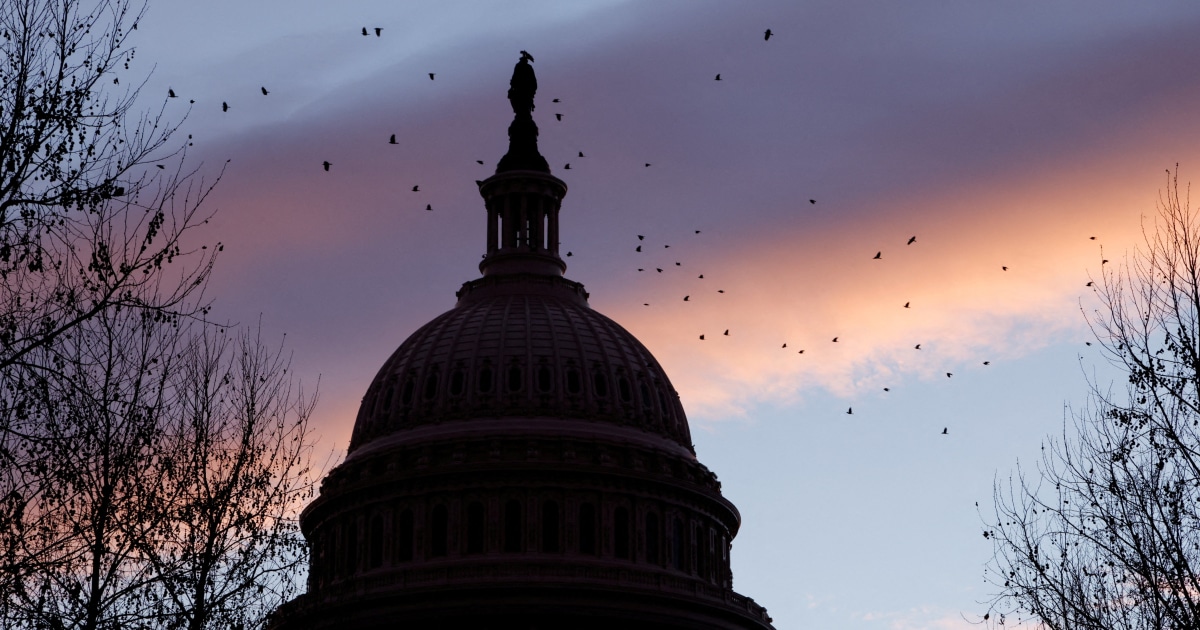
The congressional to-do list is not short during the lame-duck session, but as The New York Times reported, one of the Democratic priorities is all but certain to fall by the wayside.
Congressional leaders have all but abandoned the idea of acting to raise the debt ceiling this month before Democrats lose control of the House, punting the issue to a new Congress when Republicans have vowed to fight the move, and setting up a clash next year that could bring the American economy to the brink of crisis.
This is entirely in line with what I’ve heard from congressional staffers in recent weeks, each of whom acknowledged the seriousness of the threat, but who also conceded that nothing will happen on the issue before the new Congress is sworn in on Jan. 3.
The Times’ report added that plenty of Democrats have pushed for attention on the issue, reminding leaders that “failure to raise the statutory cap on the nation’s borrowing power — expected to be reached at some point next year — would lead to a first-ever default, creating financial chaos in the United States and the global economy.”
But it’s not going to happen during the post-election, lame-duck session — in part because it would take too long, and in part because it would require complete unanimity on the issue among the Democratic conferences, which does not exist.
And so, the countdown clock has effectively started on what will almost certainly be the single most important and most dangerous standoff of 2023.
A couple of days before the midterm elections, Ezra Klein wrote a column highlighting the stakes. “What Republicans are offering, if they win the 2022 elections, is not conservatism,” he wrote. “It is crisis. More accurately, it is crises.” One in particular stood out:
U.S. Treasuries are the bedrock asset of the global financial system. They are the safest of safe investments, the security that countries and funds buy when they must be absolutely sure that their money is safe. Much else in the financial system is priced on this assumption of American reliability: Lenders begin with the riskless rate of return — that is, the interest rate on U.S. Treasuries — and then add their premiums atop that. If the U.S. government defaults on its debt, it would trigger financial chaos. (I guess that’s one way to deal with inflation: Crash the global economy!) Republicans have been perfectly clear, though: They see the debt limit as leverage in negotiations with Biden.
Indeed, it’s amazing how direct and explicit GOP officials have been on the issue. As we discussed ahead of Election Day, Republican leaders freely admitted that they would hold the nation hostage next year, threatening to crash the economy on purpose unless their demands are met. They didn’t say exactly what would appear on their ransom note, but according to some GOP officials, cuts to Social Security and Medicare would likely be part of the plan.
After Election Day, it’s been considerably worse. Rank-and-file House Republicans have made a debt ceiling crisis one of their principal goals for 2023, and even some Senate Republicans who know better are going along. Senate Minority Whip John Thune, for example, told Bloomberg two weeks ago that the party is eyeing Social Security cuts and sees a hostage crisis as a way of pursuing the goal.
“Typically, I think there’s been a pretty broad bipartisan understanding that default’s not an option,” the South Dakotan said. “But at the same time I think there’s an understanding that this does create an opportunity especially if the pressure’s on one side to deliver that outcome.”
As a rule, any sentence that says default is not an option, followed by “but,” is not a sentence a responsible policymaker should utter.
I’m not unsympathetic to those who’ve argued that preventing a Republican-imposed crisis is nearly impossible during a lame-duck session. There’s certainly some truth to that. Democrats would either need 10 GOP votes in the Senate to deal with the debt ceiling, or they’d need to use a budget reconciliation process that (a) would take weeks to pull off; and (b) would need the support of Sens. Joe Manchin and Kyrsten Sinema. It just wasn’t going to happen.
But there will come a point in 2023 when congressional Republicans point a gun at the economy and say, “Agree to Social Security cuts or we’ll pull the trigger.” At that point, Democrats will look back at 2022 and wish they’d done away with the statutory debt ceiling altogether.
Yes, the GOP would shoulder the blame if Republicans crash the economy on purpose as part of a crisis they needlessly imposed on the nation. But that wouldn’t make the short-term and long-term suffering any less painful, and the political fallout would be unpredictable.
Source link

